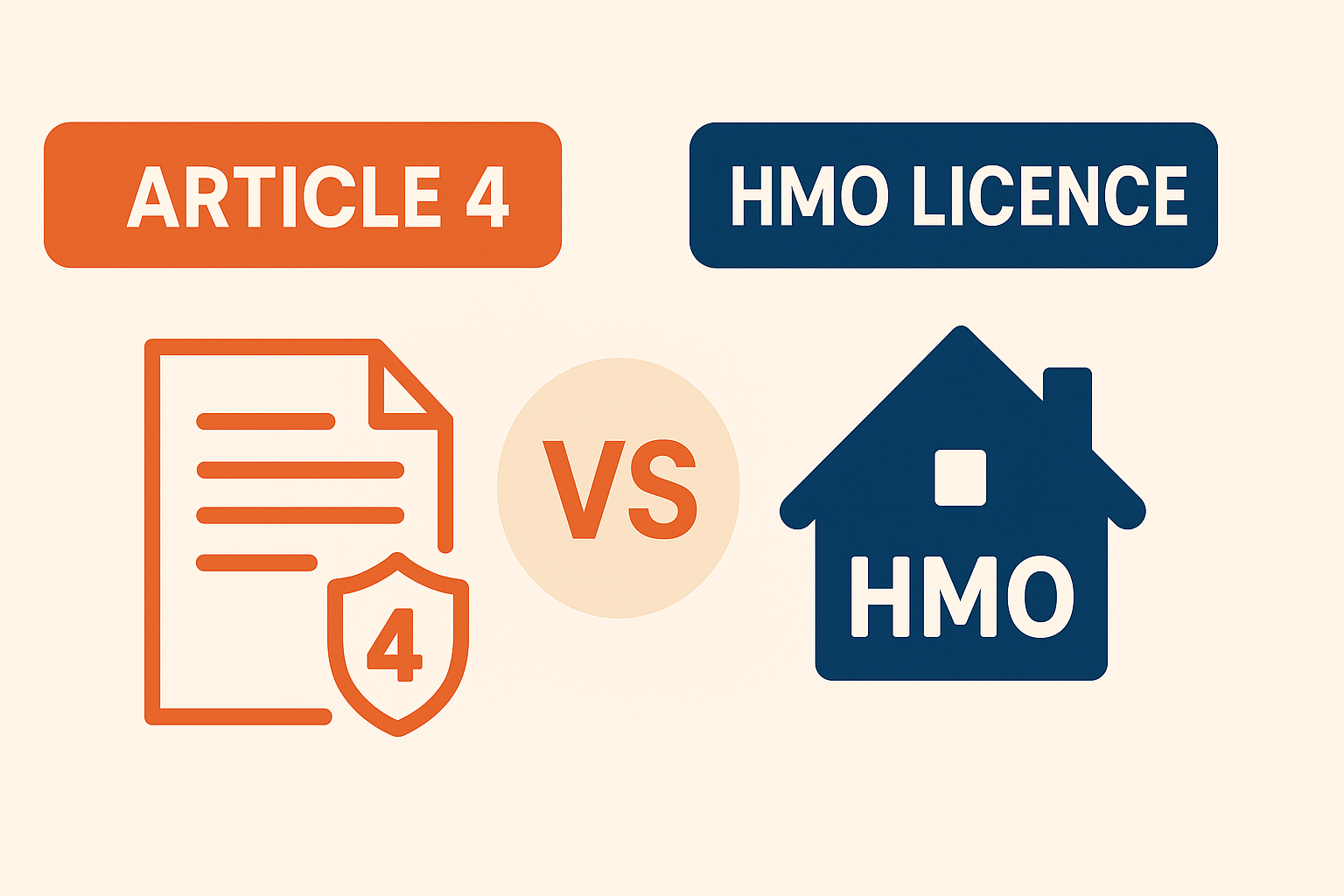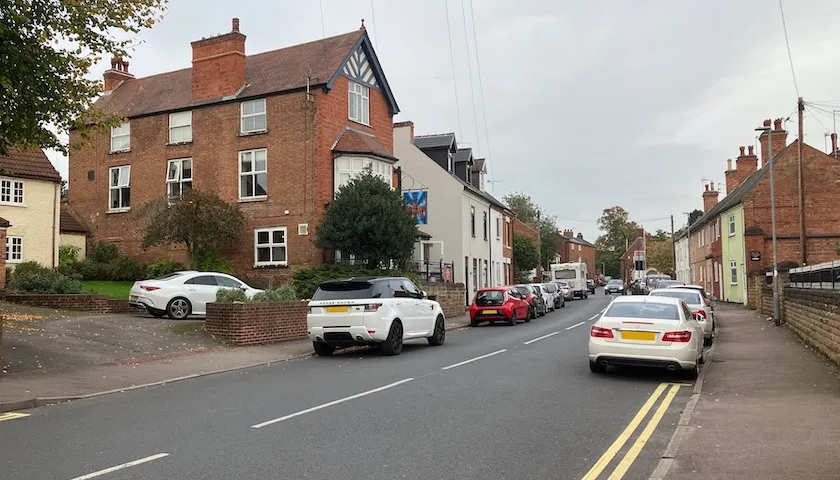🏠 Article 4 Directions vs. HMO Licences: What Landlords Need to Know
.png)
Student Housing
#1 Student Lettings Agency

If you’re a landlord thinking about letting your property as a House in Multiple Occupation (HMO), understanding the difference between Article 4 Directions (which control planning permission) and HMO licences (which regulate safety and management) is essential. Let’s dive into what each means, why they’re both important, and how they affect your rental strategy.
📑 What Is Article 4 and the C4 Use Class?
Article 4 Directions are planning restrictions imposed by local councils to control the proliferation of HMOs in specific areas. They’re commonly introduced in cities and towns where there’s concern about too many shared houses (think areas with large student populations, like Nottingham, Lincoln, and Hull).
Under normal circumstances, converting a family home (C3 use class) into a small HMO (C4 use class) — typically defined as a property rented to 3–6 unrelated tenants — is allowed under permitted development rights.
However, when an Article 4 Direction is in place, you must apply for planning permission before converting to an HMO, even for 3–6 tenants.
🔍 Key Points About Article 4 and C4 Use Class:
✅ Applies to small HMOs (3–6 tenants)
✅ Without Article 4, no planning permission is needed
✅ With Article 4, planning permission is required
✅ Decisions can depend on local policy (density of existing HMOs, community impact)
✅ It’s about controlling the use of the property, not necessarily its safety
📝 What Is an HMO Licence?
An HMO licence is a completely different requirement governed by housing law (specifically the Housing Act 2004). It ensures that HMOs meet minimum safety and management standards.
Even if you have planning permission (or don’t need it), you still need an HMO licence if your property meets certain criteria.
In England, mandatory HMO licensing applies to:
✅ Properties let to 5 or more people, forming 2 or more households, sharing facilities
✅ Local authorities may also require “additional licensing” for smaller HMOs (3 or more people)
🚨 Article 4 vs. HMO Licence: The Key Differences
Here’s how Article 4 Directions and HMO licences compare — and why you might need both:
Article 4 Directions (Planning Permission)
✅ A planning restriction that removes permitted development rights
✅ Controls the use of a property, not its safety
✅ Applies in designated areas (often areas with a high density of HMOs)
✅ Means you need to apply for planning permission to change a property’s use from C3 (family home) to C4 (small HMO)
✅ Managed by your local council’s planning department
✅ Focused on local community impact, housing density, and overall character of the area
HMO Licence (Housing Law)
✅ A legal requirement for operating an HMO, focusing on health, safety, and management
✅ Mandatory for properties let to 5 or more people forming 2 or more households who share facilities
✅ May also be required for smaller HMOs (3+ tenants) if your council has an additional licensing scheme
✅ Managed by your local council’s housing department
✅ Ensures minimum standards for fire safety, room sizes, and waste management
✅ Usually renewed every 5 years, subject to inspections and compliance
Summary:
👉 Article 4 controls land use — making sure there’s a balance of HMOs and family homes in an area.
👉 HMO licensing ensures property safety and management — making sure tenants have safe, decent homes.
👉 Depending on where you’re operating, you might need both planning permission (Article 4) and an HMO licence.
🔍 Key Points About HMO Licences:
✅ Ensures fire safety (alarms, exits, fire doors)
✅ Requires adequate kitchen/bathroom facilities
✅ Checks room sizes and overcrowding standards
✅ Covers landlord responsibilities (waste disposal, management)
✅ Usually renewed every 5 years (subject to inspection and compliance)
🏘️ So, Do You Need Both?
👉 If you’re converting a property in an Article 4 area, you’ll need planning permission before you start letting it as an HMO.
👉 If your property meets the size and occupancy requirements (usually 5+ tenants), you’ll also need an HMO licence — regardless of Article 4 status.
👉 Even smaller HMOs (3+ tenants) may require a licence if your local council operates an additional licensing scheme.
💡 Final Tips for Landlords
✅ Check Local Policies: Every council’s approach to Article 4 Directions and additional licensing can vary. Contact your local authority’s planning and housing departments for guidance.
✅ Factor in Lead Time: Planning permission and licensing can take weeks or months, so build this into your timeline.
✅ Get Professional Advice: At Student Housing, we’ve helped countless landlords navigate these requirements. Our team can help you assess whether you need planning permission, assist with licensing applications, and manage your property once it’s let.
📞 Ready to Get Started?
If you’re thinking about letting your property as an HMO — or just want to make sure you’re compliant — get in touch with us today. At Student Housing, we make renting simple, safe, and profitable.
Tags:
.png)
Student Housing
#1 Student Lettings Agency
Student Housing is a top-rated student lettings agency offering fully furnished, bills-included accommodation across Lincoln, Nottingham, and Hull. Run by former students, we provide hassle-free, transparent housing tailored for university life.






